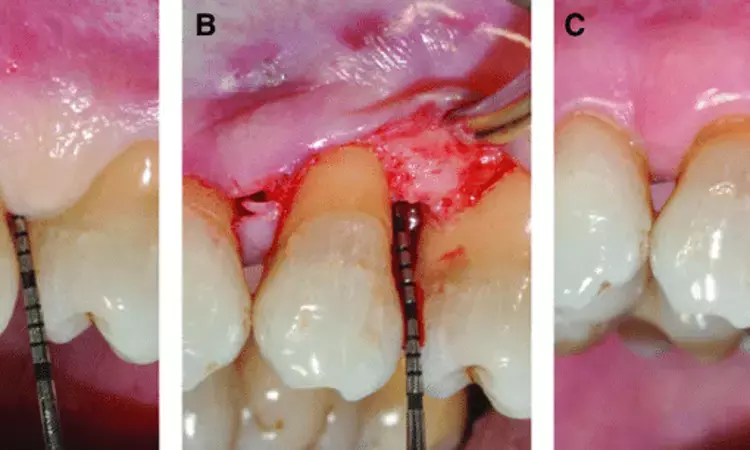- Home
- Medical news & Guidelines
- Anesthesiology
- Cardiology and CTVS
- Critical Care
- Dentistry
- Dermatology
- Diabetes and Endocrinology
- ENT
- Gastroenterology
- Medicine
- Nephrology
- Neurology
- Obstretics-Gynaecology
- Oncology
- Ophthalmology
- Orthopaedics
- Pediatrics-Neonatology
- Psychiatry
- Pulmonology
- Radiology
- Surgery
- Urology
- Laboratory Medicine
- Diet
- Nursing
- Paramedical
- Physiotherapy
- Health news
- Fact Check
- Bone Health Fact Check
- Brain Health Fact Check
- Cancer Related Fact Check
- Child Care Fact Check
- Dental and oral health fact check
- Diabetes and metabolic health fact check
- Diet and Nutrition Fact Check
- Eye and ENT Care Fact Check
- Fitness fact check
- Gut health fact check
- Heart health fact check
- Kidney health fact check
- Medical education fact check
- Men's health fact check
- Respiratory fact check
- Skin and hair care fact check
- Vaccine and Immunization fact check
- Women's health fact check
- AYUSH
- State News
- Andaman and Nicobar Islands
- Andhra Pradesh
- Arunachal Pradesh
- Assam
- Bihar
- Chandigarh
- Chattisgarh
- Dadra and Nagar Haveli
- Daman and Diu
- Delhi
- Goa
- Gujarat
- Haryana
- Himachal Pradesh
- Jammu & Kashmir
- Jharkhand
- Karnataka
- Kerala
- Ladakh
- Lakshadweep
- Madhya Pradesh
- Maharashtra
- Manipur
- Meghalaya
- Mizoram
- Nagaland
- Odisha
- Puducherry
- Punjab
- Rajasthan
- Sikkim
- Tamil Nadu
- Telangana
- Tripura
- Uttar Pradesh
- Uttrakhand
- West Bengal
- Medical Education
- Industry
Residual Probing Depth and Periodontitis Grading Good Predictors of Tooth Loss Due to Periodontitis

Residual Probing Depth and Periodontitis Grading Good Predictors of Tooth Loss Due to Periodontitis suggests a new study published in the Journal of Periodontology.
Individuals enrolled in supportive periodontal therapy (SPT) can still present with tooth loss due to periodontitis (TLP). There is limited evidence on the influence of residual pockets (RPc) and a defined “threshold” at which a patient's profile is set to be at high risk for tooth loss due to periodontitis in the literature. Therefore, this study aimed to assess the influence of residual pockets on tooth loss due to periodontitis and determine the predictive performance of residual pockets compared to the staging and grading of periodontitis on tooth loss due to periodontitis risk. Clinical data from 168 patients (3869 teeth) treated for periodontitis and receiving supportive periodontal therapy for at least 10 years were evaluated in this retrospective study. Tooth loss due to periodontitis and the percentage of sites with residual pockets ≥ 5 mm or ≥6 mm per patient were collected. The prognostic performance of residual pockets was compared to the staging and grading of the disease on tooth loss due to periodontitis using a multilevel Cox proportional hazard regression model. Results: Over a median follow-up of 25 years, 13.7% of teeth were lost, 4.6% of which were due to periodontitis. Most patients with tooth loss due to periodontitis had ≥1 site with residual pockets ≥5 mm (90.8%) or ≥6 mm (77.6%). Multivariate multilevel Cox regression revealed that patients with >15% of sites with residual pockets ≥5 mm had a hazard ratio of 2.34, and grade C had a hazard ratio of 4.6 for tooth loss due to periodontitis compared to residual pockets ≤4 mm/grade A. Grading exhibited the best discrimination and model fit. Patients with residual pockets ≥5 mm at >15% of the sites are at risk for tooth loss. Grading and residual pockets ≥5 mm displayed excellent predictive capability of tooth loss due to periodontitis.
Reference: Saleh MHA, Dias DR, Mandil O, et al. Influence of residual pockets on periodontal tooth loss: a retrospective analysis. J Periodontol. 2023; 1-12. https://doi.org/10.1002/JPER.23-0448
Dr. Shravani Dali has completed her BDS from Pravara institute of medical sciences, loni. Following which she extensively worked in the healthcare sector for 2+ years. She has been actively involved in writing blogs in field of health and wellness. Currently she is pursuing her Masters of public health-health administration from Tata institute of social sciences. She can be contacted at editorial@medicaldialogues.in.
Dr Kamal Kant Kohli-MBBS, DTCD- a chest specialist with more than 30 years of practice and a flair for writing clinical articles, Dr Kamal Kant Kohli joined Medical Dialogues as a Chief Editor of Medical News. Besides writing articles, as an editor, he proofreads and verifies all the medical content published on Medical Dialogues including those coming from journals, studies,medical conferences,guidelines etc. Email: drkohli@medicaldialogues.in. Contact no. 011-43720751


